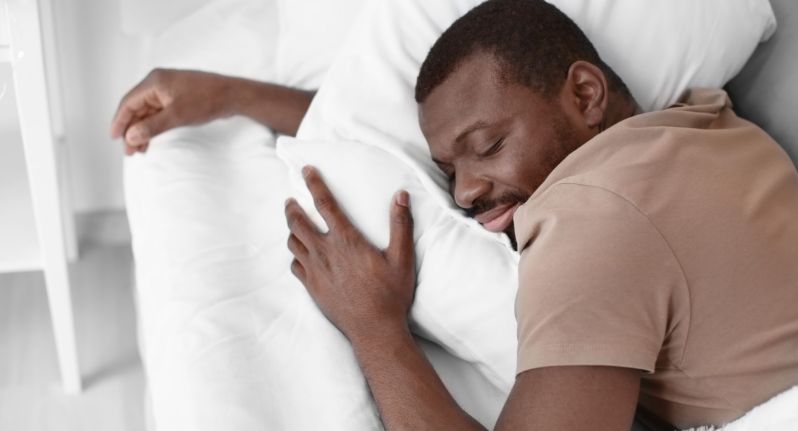
For many of us, a good night’s sleep doesn’t come naturally. Whether you have difficulty staying asleep, falling asleep, or waking up feeling unrested, a poor night’s sleep can leave you feeling sluggish and unmotivated. Not to mention, lack of quality sleep can increase your risk of developing diabetes, heart disease, and several other chronic health conditions. Consistently struggling with achieving restful sleep can be frustrating, yet it’s not inevitable. Making simple changes to your sleep hygiene can go a long way in helping you to get better sleep. Learn more about improving your sleep hygiene with our sleep tips below.

What is sleep hygiene?
As defined by the Sleep Foundation, your sleep hygiene encompasses all of your sleep habits and your environment. Having good sleep hygiene means you’ve optimized both your daily routines and practices, as well as your bedroom environment, to support the best sleep possible. While some factors that impact sleep quality may seem insignificant independently, such as sticking to a regular sleep-and-wake schedule, these factors play a critical role in getting a good night’s sleep. People who have poor sleep hygiene may suffer from both physical and mental health issues.
With this in mind, how can you tell if your sleep hygiene needs some work? The answer is in how you feel and the symptoms you experience. For example, people who have poor sleep hygiene may have a hard time falling or staying asleep or suffer from excessive daytime sleepiness as a result of little or poor sleep. If you suffer from very inconsistent sleep, it may be a sign it’s time to revamp your sleep hygiene practices.

Preparing your sleeping environment
First and foremost, it’s important to understand that your sleeping environment plays a critical role in the quality of your sleep. Factors to consider in your bedroom environment include the temperature of the room, levels of light, and noise levels. Several research studies agree that a cool, dark environment leads to the best sleep. Experts suggest that keeping your room as close to 65 degrees Fahrenheit (we know — this seems cold) can help you achieve better sleep. Sleeping in a cooler environment allows your body to keep its core body temperature down for optimal sleep.
Darkness in the room is also important to signal to our brain that it’s time to sleep. Finding ways to keep your room as dark as possible, such as using a sleep mask or blackout curtains, is a simple yet effective way to maintain a darker bedroom environment. If your home is noisy, consider using a sound machine to help support noise cancellation.

Keeping electronics out of the room
Keeping electronics out of your bedroom is one of the hardest sleep tips to follow, yet also one of the most important. Artificial light from electronic devices such as cell phones and TVs can confuse our body’s circadian rhythm. Long before electronics were invented, our bodies knew when it was time to rise by the natural sunlight and time to sleep by the darkness outside.
To make matters worse, the blue light that comes from screens can impair sleep by keeping our brains awake and decreasing the production of melatonin. Although using blue light prevention glasses can be helpful, keeping electronics outside your bedroom environment is the best way to achieve better sleep. If you use your phone as an alarm clock, you might even have to go back to using an old-school alarm clock.

Sticking to a wake-and-sleep schedule
Inconsistencies in sleep schedules can confuse your body’s circadian rhythm, especially where there’s lots of variation in your wake and sleep times. To improve your sleep hygiene, aim to wake up and sleep around the same time every day. A consistent sleep schedule can help maintain a regular internal clock and make it easier to fall asleep and stay asleep. Furthermore, sticking to a schedule will make sure you don’t stay up too late — ensuring you get at least seven hours of sleep each night.

Eating and drinking before bed
Eating dinner too close to the time you head into bed can also impact your ability to sleep well. Aim to have dinner at least two or three hours before bed to let your body properly digest before laying down. Consuming too much alcohol before bed can also impact your sleep — so be careful with that nightly glass (or two) of wine. To help support better sleep, you can also try incorporating foods high in melatonin.

Achieving better sleep hygiene
Improving your sleep hygiene routine will take some time but can make a major impact on your sleep quality. Pay close attention to your sleeping environment, including the temperature, noise levels, and amount of light in the room. In addition, consider sticking to a sleep schedule, avoiding eating too close to bed, and keeping electronics out of the bedroom for better sleep. Our sleep hygiene checklist to begin making small changes to transform your sleep quality.



